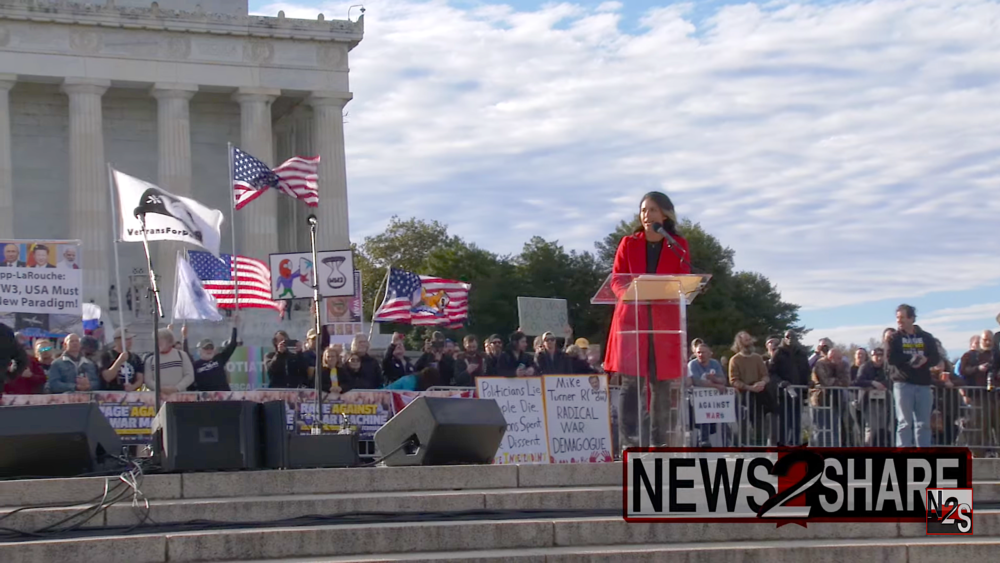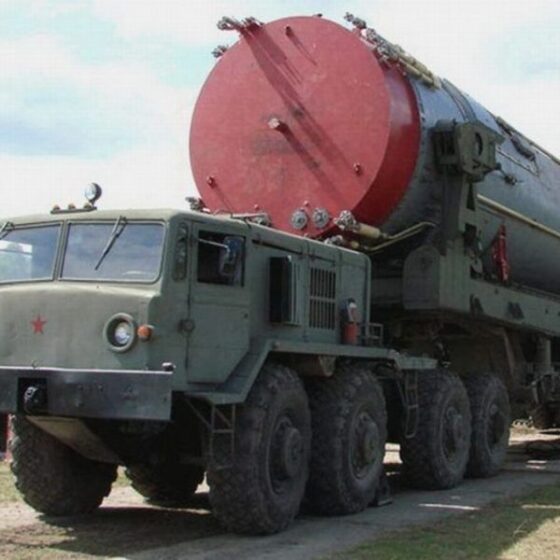
The Future of U.S. Nuclear Strategy
The fallout from Washington’s policy of looking for Russia’s tactical defeat has actually seen Moscow significantly alter its arms control position. That raises essential questions about the winner of the next U.S. governmental election.
By Scott RITTER
The United States discovers itself roaming in a wilderness of indecision when it comes to arms control policy.
The scenario regarding the status of the last existing nuclear arms manage treaty with Russia– the New START treaty– is dire. Application is currently frozen after Russia suspended its involvement in demonstration to a specified U.S. policy objective of looking for the tactical defeat of Russia, something Russia discovers incompatible with opening its tactical nuclear deterrent (which exists specifically to avoid Russia’s strategic defeat) to assessment by U.S. officials.
The U.S. is not talking with Russia about the future of arms control once New START ends in February 2026.
Additionally, fallout from the U.S. policy of looking for strategic defeat of Russia has seen Moscow drastically modify its position regarding future arms manage treaties. Any future agreement must, from the Russian viewpoint, include missile defense; the French and British nuclear toolboxes, as well as the U.S.-supplied NATO nuclear deterrent.
Russia has actually even more complicated any future settlements by releasing tactical nuclear weapons to its Baltic enclave in Kaliningrad, along with extending its Russian-controlled nuclear umbrella to Belarus where it has mirrored the NATO nuclear umbrella.
The state of play today concerning tactical arms control between the U.S. and Russia can best be likened to a client on life assistance whom nobody is attempting to revive.
Russia remains in the procedure of finalizing a significant modernization of its tactical nuclear forces, constructed around the brand-new Sarmat heavy global ballistic rocket (ICBM) and the Avangard hypersonic reentry car. The United States is on the cusp of starting its own multi-billion dollar upgrade to the U.S. nuclear Triad consisting of the B-21 stealth bomber, the Columbia class rocket submarine and the brand-new Sentinel ICBM.
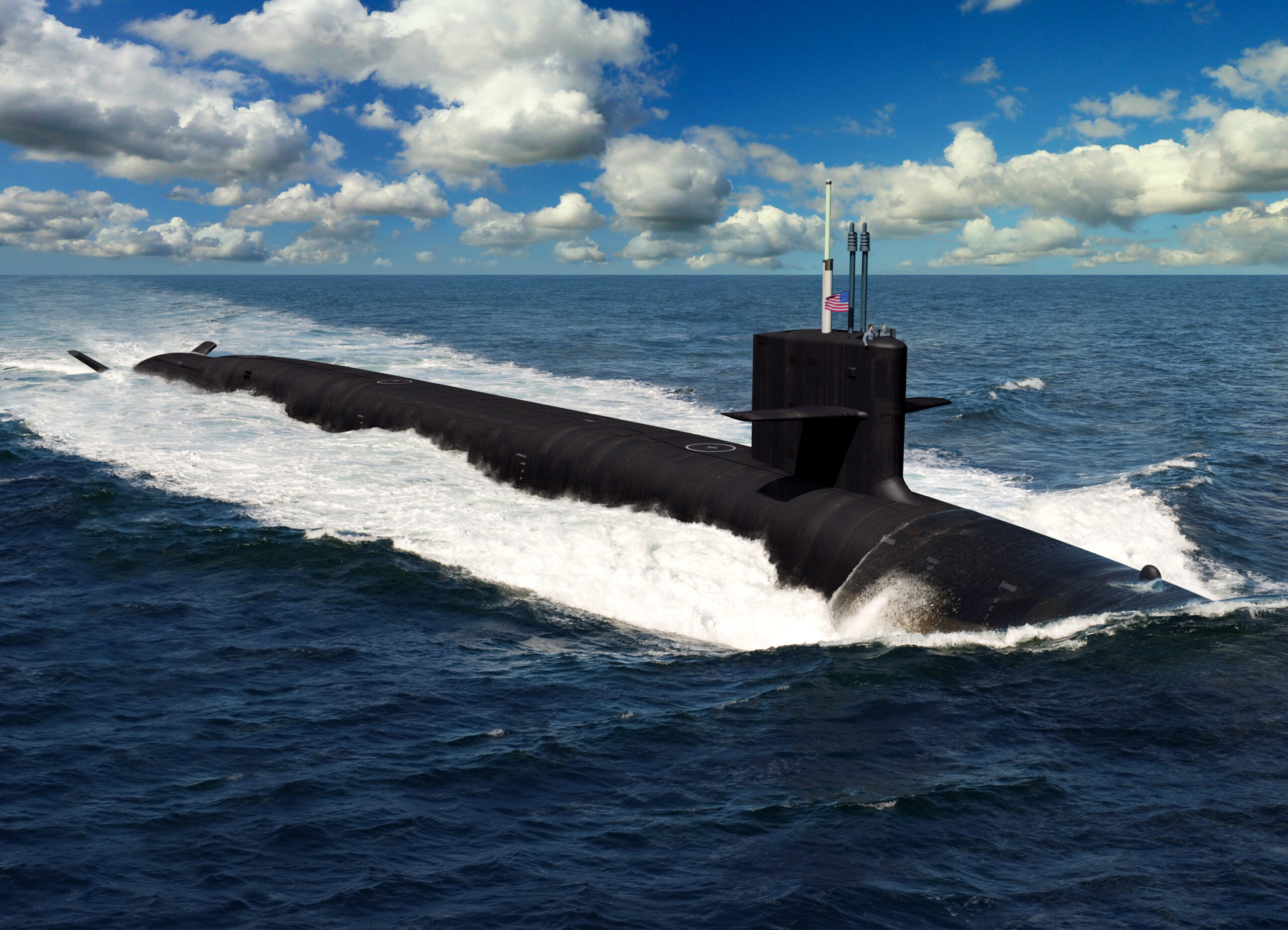
An artist making of the future U.S. Navy Columbia-class ballistic missile submarines. (U.S. Navy/ Wikimedia Commons)
If no treaty vehicle exists designed to verifiably restrict the release of these new weapons, once New START ends, the U.S. and Russia will find themselves taken part in an unconstrained nuclear arms race that drastically increases the possibility of unexpected nuclear dispute.
When seen in this light, the future of international security hinges on the ability of Russia and the U.S. going back to the negotiating table and resuscitating arms control from its present moribund state.
Key to this will be the determination of Washington to integrate Russian concerns into U.S. nuclear posture. To accomplish this, the U.S. nuclear facility will have to be shaken out of the calcified policy presumptions that have directed U.S. arms control policy since completion of the Cold War.
First and foremost amongst these presumptions is the requirement to promote and sustain U.S. primacy in global nuclear weapons ability. Whether such a presumption is jettisoned will be tied to the person inhabiting the White Home after the February 2026 expiration of New START.
This makes the 2024 U.S. presidential election among the most vital in current history. Basically, the future of humanity may ride on whomever the American people choose in November 2024.
The Establishment Basic
President Joe Biden has suggested that he will be looking for a second term in workplace. While some have actually suggested that, provided Biden’s age, this objective might be too optimistic, the truth is that if Biden, Vice President Kamala Harris, or some other person designated by the Democratic Party remains in workplace to continue the Biden administration’s agenda for another four years, decisions on the future of the U.S. nuclear posture and, by extension, arms control policy, will stay in the hands of the same facility that has actually put us in the circumstance we remain in today.
It appertains to ask, therefore, whether or not the “establishment” can carrying out the changes required to get U.S.-Russian arms control back on track. History suggests not.
Biden ran in 2020 on a pledge to change U.S. nuclear method away from the George W. Bush-era policy, when preemptive U.S. nuclear strikes were a possibility, to a teaching holding that U.S. nuclear forces exist for the sole function of preventing a nuclear attack versus the U.S., or retaliating if deterrence stopped working.
Nevertheless, as soon as chosen Biden’s pledge fell to the wayside as an “interagency procedure” run by unelected bureaucrats and military officers intervened to avoid project rhetoric from ending up being main policy.
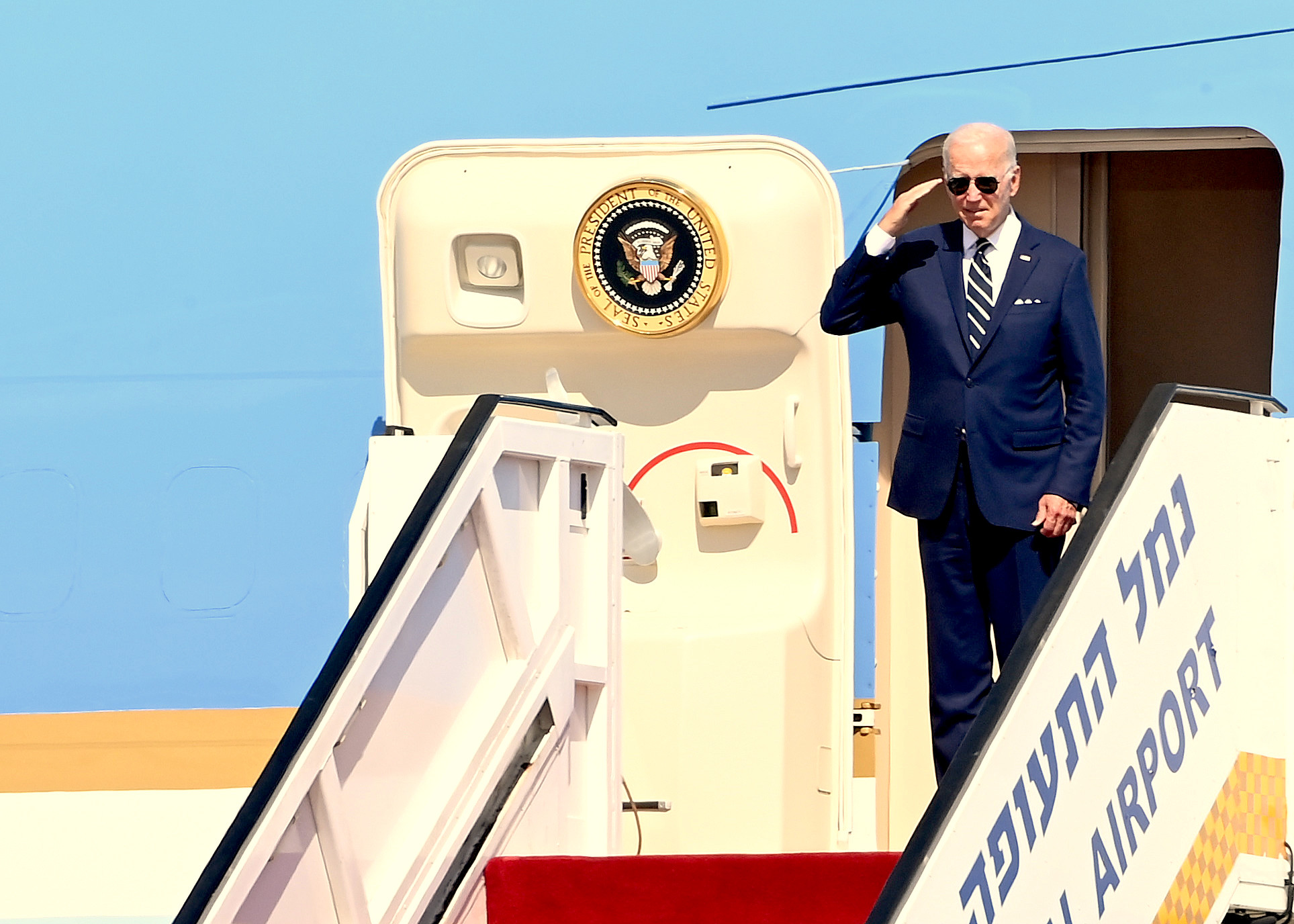
U.S. President Joe Biden in Israel, July 2022.(U.S. Embassy Jerusalem, Flickr, CC BY 2.0 )Biden, like every American president before him in the nuclear age, has actually been not able and/or reluctant to expend the political capital necessary to take on the American nuclear enterprise, and as an outcome the American individuals and the rest of humanity are held hostage by this lethal nexus in between the U.S. military industrial complex and the U.S. Congress.
Congress assigns taxpayer cash to underwrite a nuclear weapons-oriented, defense industry, which in turn feeds this money back into project contributions that empower a jeopardized Congress to keep moneying the nuclear business– developing a vicious cycle impervious to change of its own volition.
Biden or anybody Democratic candidate in 2024 is a by-product of this extremely facility, and a willing participant in the corrupt circle of cash and power that is the nuclear, military industrial-congressional complex. In short, if Biden or his proxy is sitting in the White Home in 2025, there will be no change in the U.S. nuclear posture on arms control policy.
This suggests any Democratic Party-controlled prospect voted into office in November 2024 might effectively be the last president to hold workplace, provided the possibility of nuclear war between the U.S. and Russia, which a the same nuclear posture and arms control policy will promote.
The Trump Standard
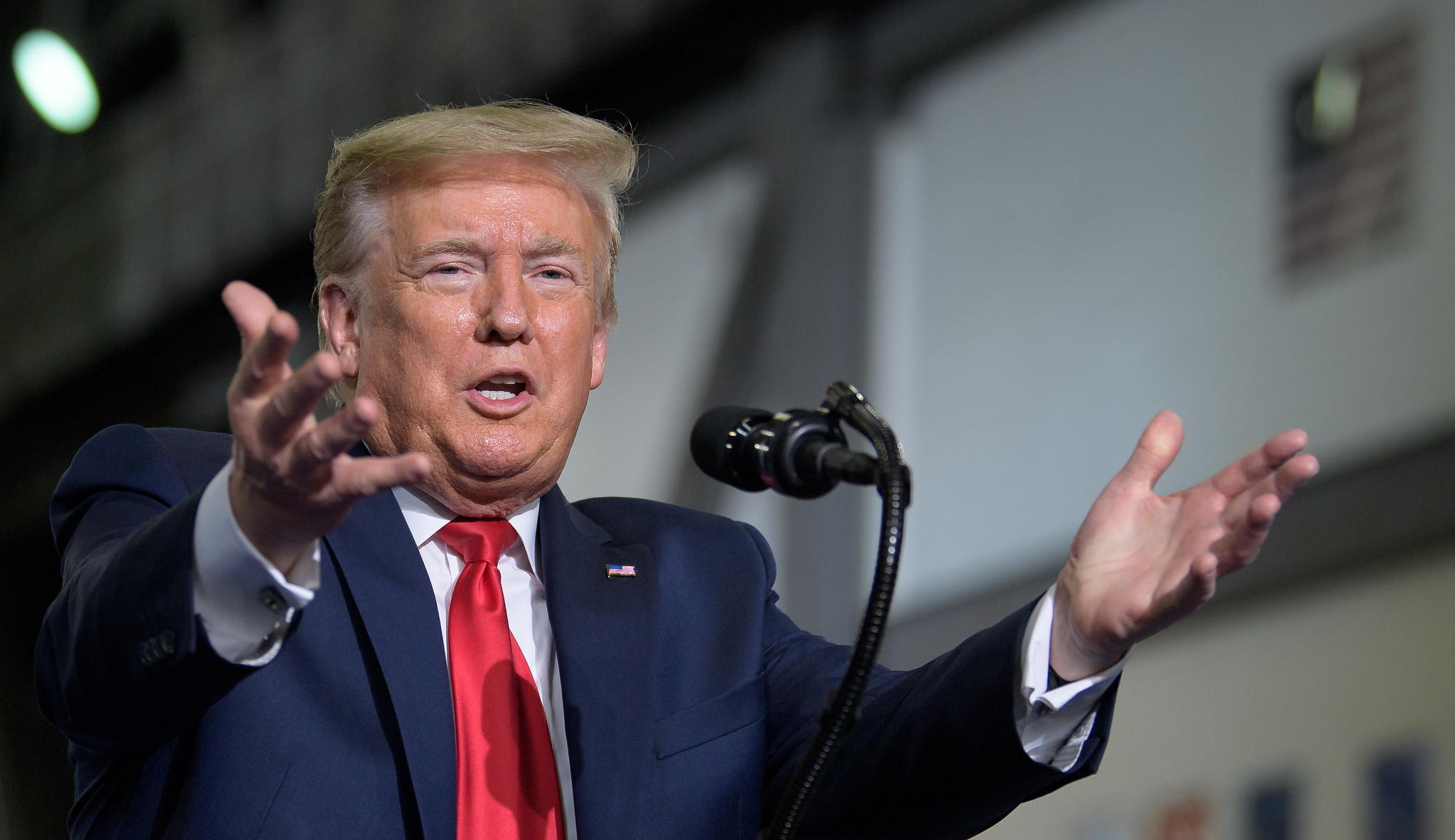
U.S. President Donald Trump speaking after the launch of NASA’s SpaceX Demo-2 objective with NASA astronauts Robert Behnken and Douglas Hurley onboard, May 30, 2020, at the Kennedy Space Center in Florida. (NASA/Bill Ingalls)
Donald Trump, who preceded Biden as the occupant of 1600 Pennsylvania Opportunity, has actually thrown his hat into the 2024 governmental race.
Given the current state of the Republican politician Party, which has been cowed into submission to Trump’s “make America excellent again” brand of populist politics, it’s extremely not likely the GOP will install a primary prospect efficient in defeating Trump, his continuous legal dramas regardless of.
Whether Trump could pull off a 2nd successful presidential run is not the problem here. Instead, the concern is whether Trump can promote an arms control stance different from Biden and the Democratic and Republican facilities that might break without existing restrictions– providing arms control a possibility.
Trump’s performance history is decidedly mixed in this regard. On the one hand, he has articulated some fundamental beliefs which, if incorporated into official U.S. policy, might significantly change the method the U.S. relates with the remainder of the world and, in doing so, create a new paradigm efficient in sustaining a modified arms manage policy.
Trump’s determination to break free of the ideological prison of widespread Russophobia by thinking about the possibility of friendly relations in between the U.S. and Russia makes him special amongst traditional presidential candidates of either party.
Likewise, Trump’s questioning of NATO’s viability and function means that a future Trump administration might engage in the type of policy restructuring that ends the perpetual state of tension in between NATO and Russia because NATO needs a Russian hazard to justify its existence.
NATO’S diminishment as a policy chauffeur would release both the U.S. and Europe to more logically check out the capacity for a new European security framework in a post-Ukraine dispute world. Such a posture would, in one fell swoop, aid solve many of the add-on concerns Russia now firmly insists should become part of any future U.S.-Russian arms manage contract, consisting of missile defense, French and U.K. nuclear weapons and the U.S.-provided NATO nuclear deterrent.
More important, nevertheless, is Trump’s proven track record in breaking free of previous policy precedent in pursuit of meaningful nuclear disarmament.
The case of North Korea sticks out. Trump met with North Korean leader Kim Jung-un on 3 different events to attempt to bring about the denuclearization of North Korea. While ultimately this gambit stopped working, in big part due to the fact that of the resistance to alter on the part of establishment figures like Trump’s secretary of state, Mike Pompeo, and National Security Consultant John Bolton, the reality that Trump even went down that path shows that, unlike his predecessors and successor, he wanted to go above and beyond in pursuit of ground-breaking modification in U.S. arms manage policy.
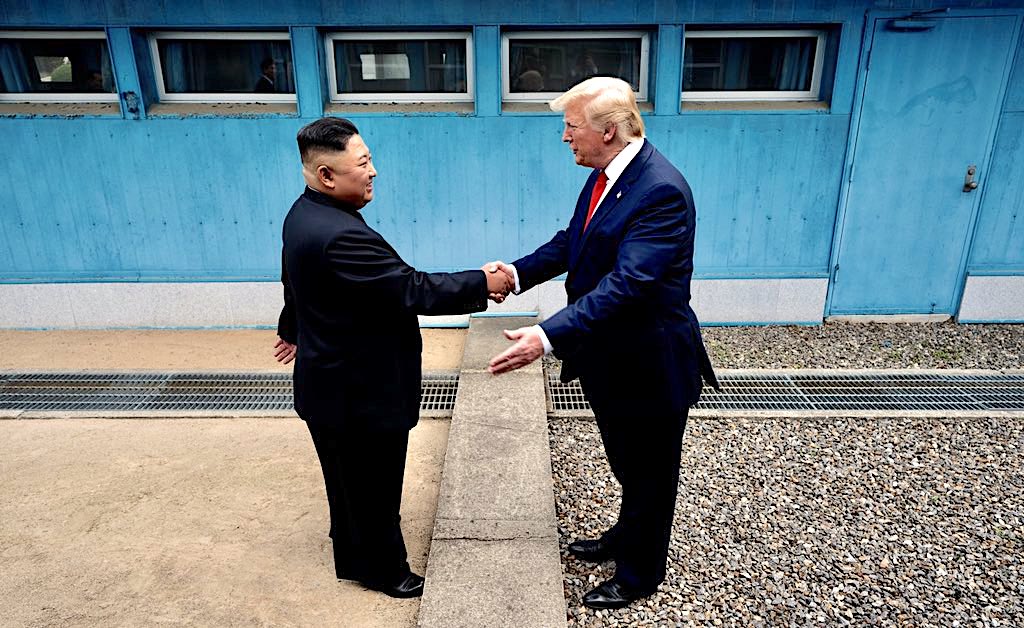
July 1, 2019: President Donald Trump and North Korean leader Kim Jung-un just before Trump became very first U.S. president to step on North Korean territory. (White Home)
However there is another side to Trump which bodes badly for any meaningful modification in U.S.-Russian arms control. First and foremost is his abysmal record on arms control.
He withdrew from the Iran nuclear deal, he withdrew from the Intermediate Nuclear Forces treaty and he released as policy the most aggressive nuclear posture file in recent history, one which, according to Trump authorities, was designed to “keep the Russians thinking” regarding whether the U.S. would preemptively utilize nuclear weapons.
Trump refused to meaningful engage with the Russians on any aspect of arms control, and instead accepted the modernization of U.S. strategic nuclear forces. In other words, there was no light between Trump’s arms manage policy and that of the “facility.” Certainly, one might make the case that Trump’s policies represented an escalation over the standard.
Then there is Trump’s propensity toward pugilistic bluster driven, obviously, by some inner insecurity that requires any U.S. negotiating position to be drawn from a posture of frustrating strength and supremacy. He spoke of being “friends” with Russia, just to openly extol being the “toughest president ever” when it pertained to sanctioning Russia.
He withdrew from the Iran nuclear contract, imposing brand-new sanctions, all the while promoting the concept of a new negotiation that would solve the Iran nuclear issue. And his North Korean effort consisted of a few of the most war-like rhetoric said by an American president in the nuclear age, assuring “fire and fury” if North Korea stopped working to toe the line.
The bottom line is that the “Trump Requirement” for arms control remains in numerous methods a lot more harmful than that of the “establishment,” promoting as it does an aggressive posture founded in dominance.
In the end, Trump showed incapable of acting on his own belief, enabling himself to be subordinated to a radical America-first nationwide security ideology which promoted the enhancement and growth of the American nuclear business– the precise opposite trajectory the U.S. requires to be taking come 2024.
There is no affordable expectation that a 2nd Trump term would deviate meaningfully from that performance history.
A New American Requirement in Arms Control
The extreme reality today is that neither of the two prospective sources of practical governmental prospects for the 2024 election– Democratic National Committee or MAGA Republicans– are placed to impact meaningful, favorable change relating to either U.S. nuclear posture or underlying arms control policy.
That leaves the American people, and the world as an entire, with the inevitability of a huge nuclear arms race between the U.S. and Russia, which will unfold unconstrained by meaningful arms manage treaty-mandated restrictions.
This is nothing except a dish for disaster, a witch’s brew of ignorance-based worry amplified by the absence of examinations designed to mollify concerns over the respective nuclear hazards presented by two countries no longer happy to participate in meaningful dialogue and, as an outcome, perched on the precipice of an apocalyptic void.
In other words, a vote for either Biden/the Democratic establishment or Trump/MAGA Republican politicians is a vote in favor of continuous nuclear-armed Russian live roulette, where there exists only one certainty– ultimately the pistol will go off. But in this case, it’s not a pistol, but a nuclear weapon that causes general nuclear war and the termination of life on world earth as we presently understand and comprehend it.
The rally kept in Washington, D.C., on Feb. 19 provided a platform for some voices of sanity who have governmental capacity, either as independent candidates, or rogue outliers within their respective party facilities. Tulsi Gabbard, Dennis Kucinich, Ron Paul, and Jimmy Dore all addressed the danger posed by nuclear weapons and the requirement to manage them through meaningful arms control.
Tulsi Gabbard at Feb. 19 anti-war rally in Washington. (News2Share screenshot)
However none who spoke have actually put anything in composing that would from another location constitute an arms control “standard” that might compete with either Biden or Trump– or their proxies– on the general public phase. Furthermore, aside from Dore, a comedian, none of these individuals has revealed an objective to run, making moot, for the moment at least, the idea of a 3rd choice on arms control and American nuclear posture.
Robert F. Kennedy, Jr., the nephew of former President John F. Kennedy, has revealed his intention to challenge Biden for the Democratic nomination. While Kennedy, at this juncture, seems a long-shot, the most likely mental and physical degeneration and possible incapacitation of Biden in between now and November 2024, integrated with the inadequacy of Vice President Kamala Harris as a governmental prospect, means the Democratic field might be tossed open.
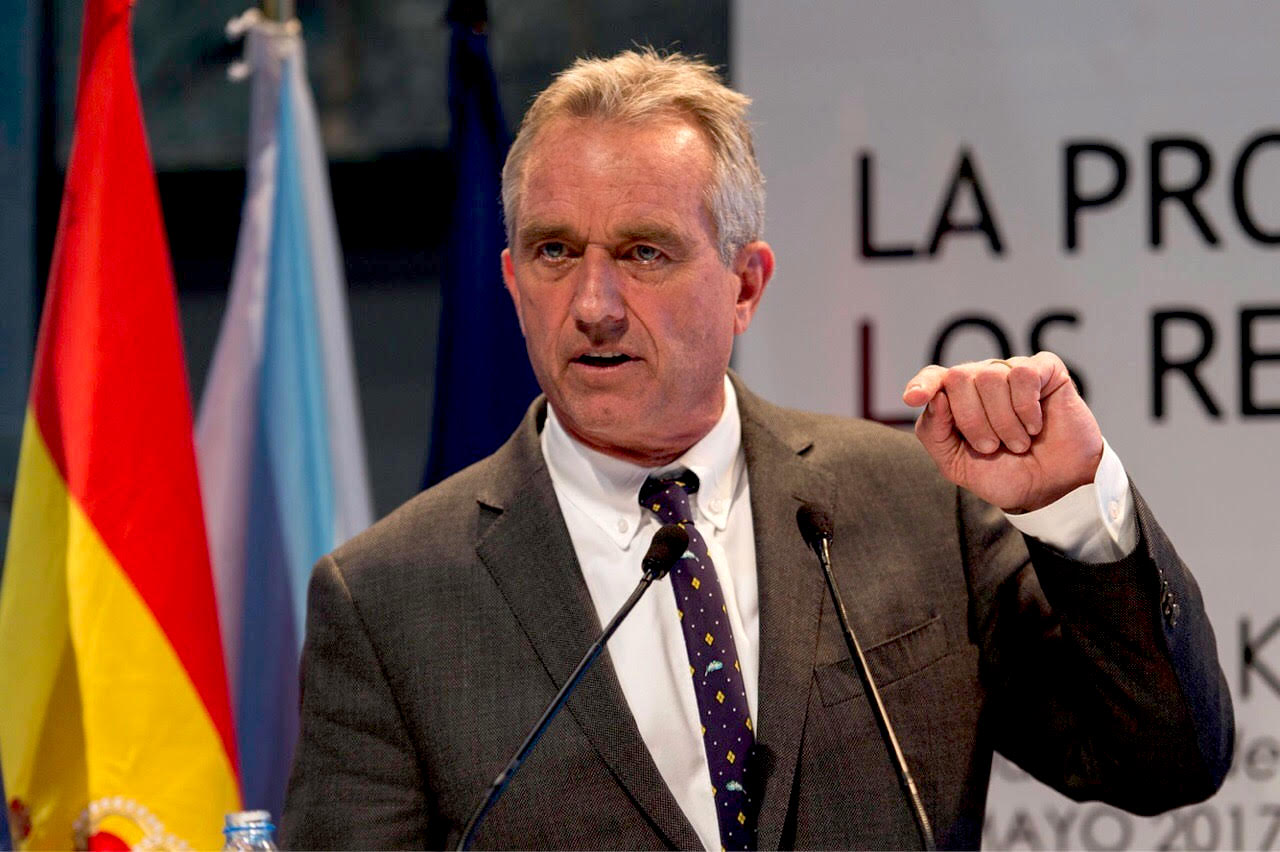
Robert F. Kennedy, Jr., in 2017. (Maxlovestoswim/ CC BY-SA 4.0, Wikimedia Commons)
Kennedy’s announcement puts him in position to be either the candidate himself, or to challenge whatever facility figure the Democratic Celebration picks for the task.
The question is whether Kennedy wants or able to articulate a brand-new American standard on arms control, one that welcomes the very best of the Trump Standard without the pugilistic conceit Trump brings with it.
Kennedy has actually not published a detailed position on arms control and the U.S. nuclear posture. However in a current discussion with me, he spoke about the tradition of his uncle, Jack Kennedy, and how he took assistance from that legacy.
Any guy who brings into play the knowledge and perseverance shown by President Kennedy to pacify the Cuban Rocket Crisis would be on the ideal track when it comes to arms control.


